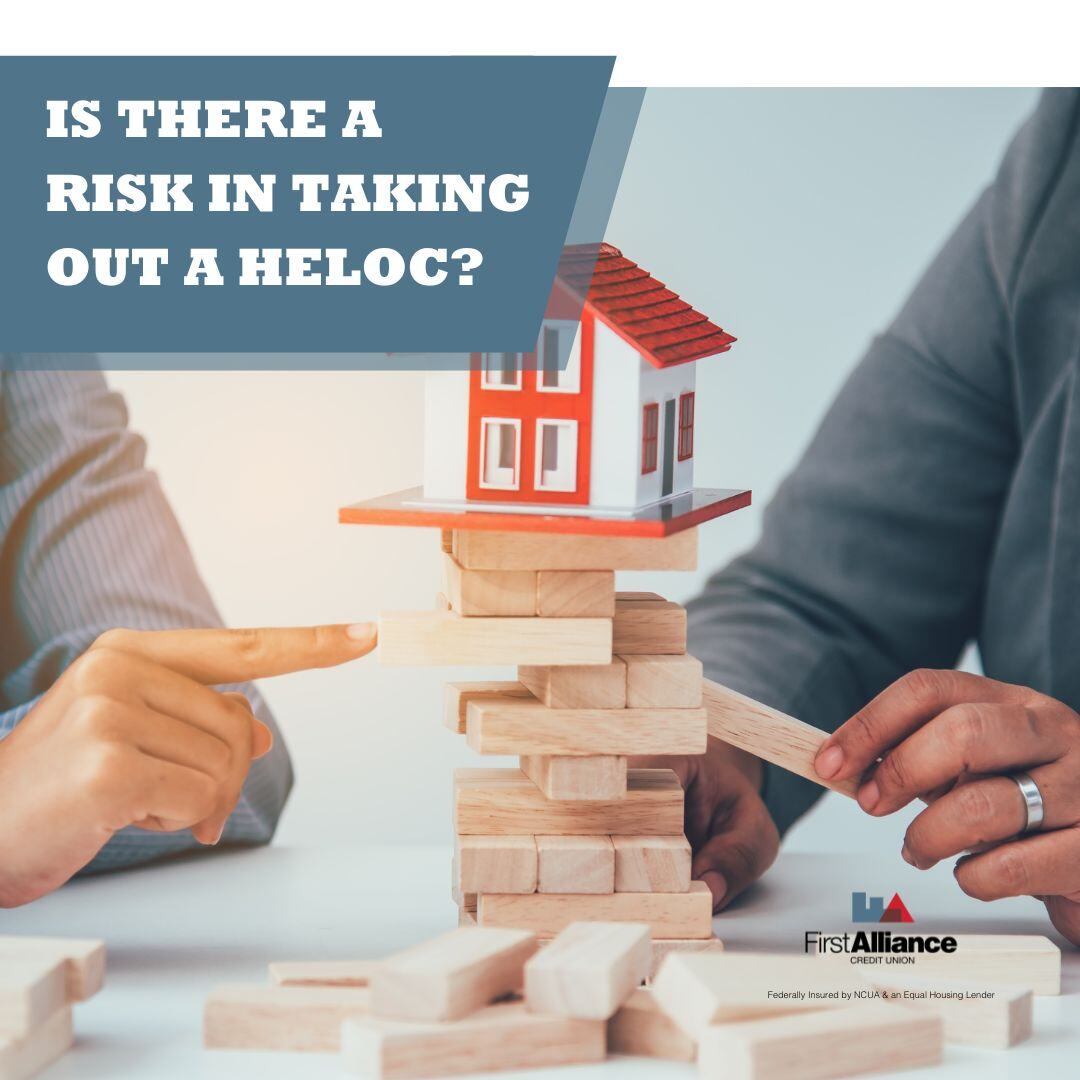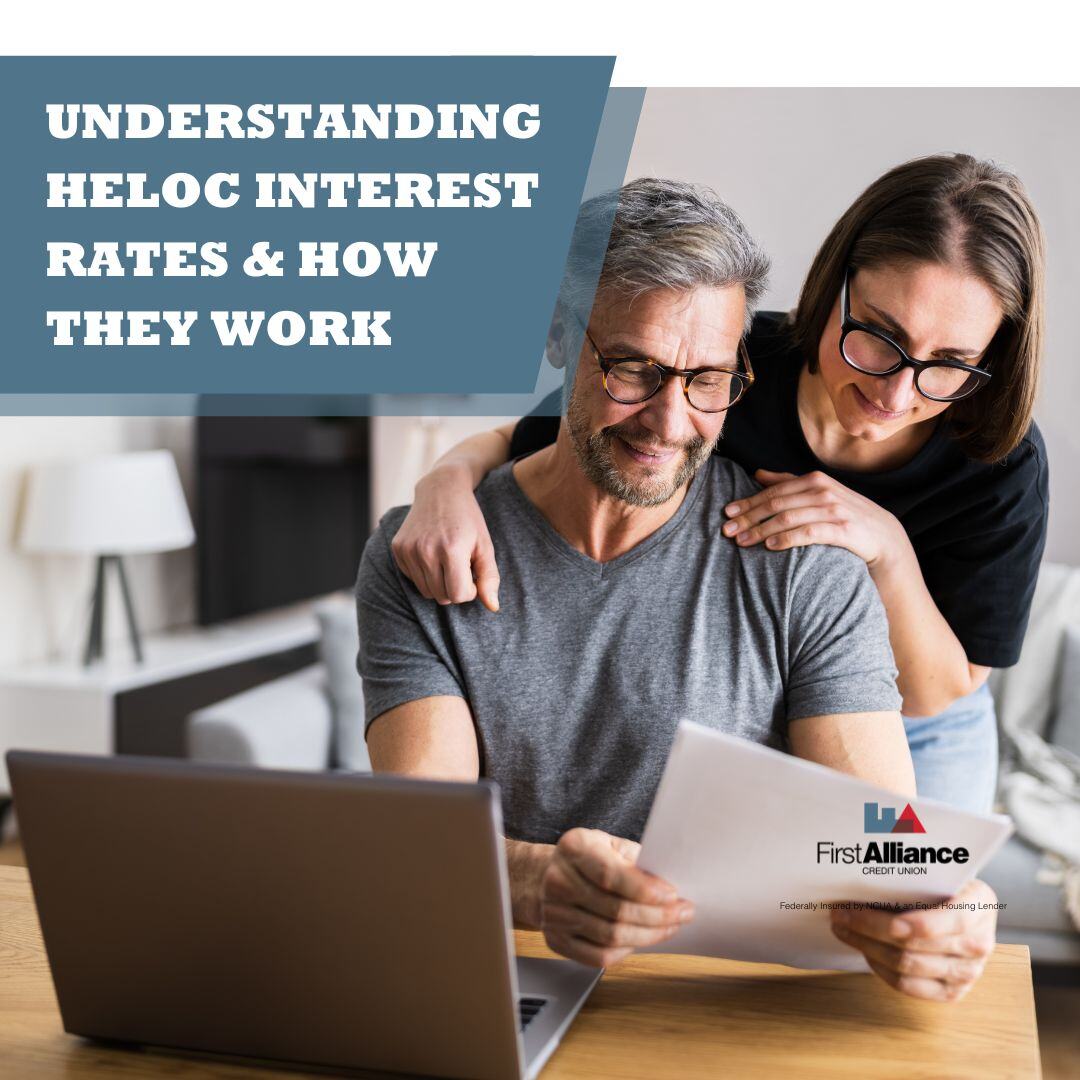Understanding HELOC Interest Rates & How They Work
If you're new to the world of home financing and have built some equity in your home, you might be considering a Home Equity Line of Credit (HELOC)...

A Home Equity Line of Credit (HELOC) can seem like a handy way to get some extra cash. But is it worth the risk? Let's dive into the potential pitfalls and dangers to help you make an informed decision.
One of the biggest risks of a HELOC is that your home serves as collateral. If you miss payments, you could face foreclosure. Defaulting on a HELOC is not like defaulting on a credit card. With a credit card, you might get hit with late fees and a lower credit score, but with a HELOC, you could lose your home. It’s essential to be confident in your ability to make payments before committing to a HELOC.
The stakes are significantly higher when your home is at risk. If you default on your credit card, the consequences are primarily financial, like late fees and a negative impact on your credit score. However, defaulting on a HELOC can lead to foreclosure, meaning you could lose your home. This high level of risk underscores the importance of being absolutely sure you can handle the payments before you proceed with a HELOC.
HELOCs usually come with variable interest rates, meaning your payments can increase if interest rates rise. This unpredictability can make it hard to budget your finances. During the draw period, you might only be required to make interest payments, which can be tempting. But once the repayment period starts, you'll need to pay both interest and principal, potentially causing a significant jump in your monthly payments.
The variability of interest rates can lead to financial instability. HELOCs typically have adjustable rates, which means that your payments can fluctuate based on the prime rate or other benchmarks. This can make it challenging to predict and manage your monthly expenses. For instance, if you only make interest payments during the draw period, you might face a substantial increase in your monthly payments once the repayment period begins. This can lead to financial strain if you’re not prepared for the higher costs.
When you take out a HELOC, you are borrowing against your home’s equity. If property values drop, you might owe more than your home is worth, a situation known as negative equity. This can make it difficult to sell your home or refinance your mortgage. Moreover, if your home’s value drops significantly, your lender might reduce your credit limit or freeze your HELOC altogether.
The risk of negative equity is a serious concern. Borrowing against your home’s equity means that if property values decline, you could end up owing more than your home is worth. This situation, known as negative equity, can make it incredibly difficult to sell your home or refinance your mortgage. Additionally, if your home’s value drops dramatically, your lender might reduce your available credit or even freeze your HELOC, limiting your access to funds when you might need them most.
Taking out a HELOC can offer you access to flexible funding, but it also comes with significant risks. It's important to weigh these pros and cans to determine if a HELOC is the right choice for your financial situation:.

Flexible Access to Funds: You can borrow as much or as little as you need, up to your credit limit, during the draw period.
Lower Interest Rates: HELOCs generally have lower interest rates compared to credit cards and personal loans.
Tax Deductible Interest: In some cases, the interest you pay on a HELOC might be tax deductible, especially if the funds are used for home improvements.
HELOCs offer several advantages, including flexible access to funds, lower interest rates compared to other types of loans, and potential tax benefits. The ability to borrow only what you need during the draw period can provide significant flexibility, especially if you’re facing large, ongoing expenses like home renovations. Additionally, the lower interest rates can save you money compared to using credit cards or personal loans. And, if you use the funds for home improvements, the interest might be tax deductible, offering further financial benefits.

Risk of Foreclosure: Missing payments could result in losing your home.
Variable Rates: Payments can become unaffordable if interest rates rise.
Negative Equity: Falling home values can trap you in debt greater than your home’s worth.
However, the cons of a HELOC are significant and should not be overlooked. The risk of foreclosure is perhaps the most severe consequence, as missing payments can lead to losing your home. Additionally, the variable interest rates can result in unpredictable and potentially unaffordable payments. Lastly, the risk of negative equity can trap you in a situation where you owe more than your home is worth, making it difficult to sell or refinance your property.
Deciding whether a HELOC is worth it depends on your financial situation and how you plan to use the funds. HELOCs can be beneficial if you’re using the money for home improvements that increase your property’s value. However, they are not advisable for covering everyday expenses, vacations, or purchasing depreciating assets like cars. Always consider your ability to repay the loan and have a clear plan for managing your finances to avoid the pitfalls of HELOCs.
Evaluating whether a HELOC is worth it requires a careful analysis of your financial situation and intended use of the funds. HELOCs can be an excellent tool for financing home improvements that increase your property’s value. However, they are not recommended for everyday expenses, vacations, or purchasing depreciating assets like cars. It’s crucial to assess your ability to repay the loan and develop a clear financial plan to avoid the potential risks associated with HELOCs.

Using a HELOC for vacations might seem appealing due to lower interest rates compared to credit cards, but it’s still debt. Funding leisure activities with borrowed money can lead to long-term financial strain. It’s important to remember that a vacation is a luxury, not a necessity, and using a HELOC to fund it can lead to deeper financial troubles if you’re unable to repay the loan.
Relying on a HELOC to cover daily living expenses indicates you're living beyond your means. This could lead to accumulating more debt without addressing the underlying financial issues. Using a HELOC for everyday expenses is a clear sign of financial instability, and it’s essential to find more sustainable ways to manage your budget.
Cars depreciate (decrease in value) over time, unlike home improvements that can increase your property’s value. Using a HELOC for a car is risky because if you default, you could lose your home for a depreciating asset. It’s generally better to secure an auto loan specifically designed for purchasing a vehicle rather than risking your home for a car.
Transferring credit card debt to a HELOC might lower your interest rate, but it’s crucial to address the behavior that led to the debt. Otherwise, you risk accumulating more debt and potentially losing your home if you can’t keep up with payments. It’s essential to develop a plan to manage and reduce your credit card debt without relying on your home’s equity.
Using a HELOC to invest is highly speculative. The value of investments can fluctuate, and if they decline, you’ll be left with debt and no gains, potentially risking your home in the process. Investment returns are never guaranteed, and using borrowed money to invest can lead to significant financial losses if the market doesn’t perform as expected.
In conclusion, while a HELOC can offer flexible financing options, it comes with significant risks. Weigh the pros and cons carefully, and ensure you fully understand the terms and conditions before proceeding. Your home is a valuable asset, and it’s crucial to protect it by making informed financial decisions. Always consider alternative financing options and consult with First Alliance Credit Union advisors to ensure you’re making the best choice for your situation.

If you're new to the world of home financing and have built some equity in your home, you might be considering a Home Equity Line of Credit (HELOC)...

In the past, we’ve talked about financial concepts that might be a bit tricky to understand, like a personal loan or an escrow account. With both of...

If you’re trying to figure out how to fund your home improvement project, you may have heard about a home equity line of credit, or HELOC. If you...